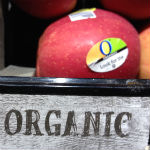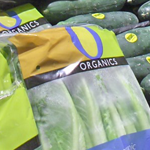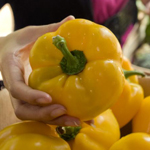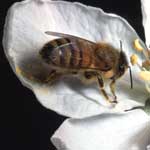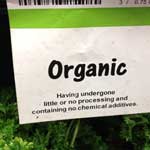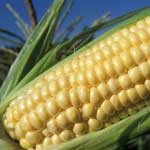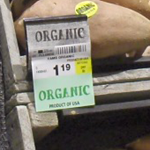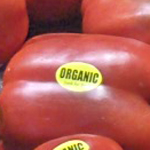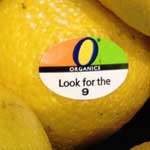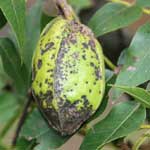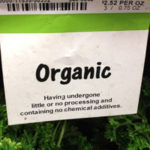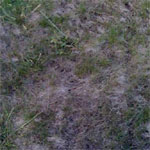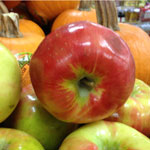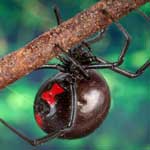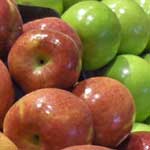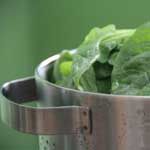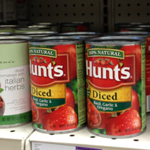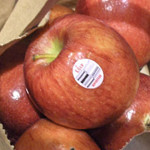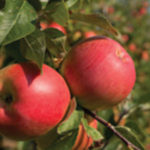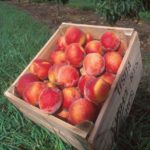"Federal Children's Environmental Health Grants Used to Peddle Junk Science," By Angela Logomasini, Ph.D For more than two decades, the federal government has doled out millions of dollars to fund university-based “children’s environmental health centers.” These centers operate under the guise of objectivity, but they are far from objective. They are instead part of a web of left-leaning environmental activist organizations that have long misused taxpayer funds to peddle junk science, leading … [Read more...]
Dirty Marketing of Organic Food
"Conventional Produce Is Not Dirty, But The Marketing Tactics Of Big Organic Are," By Steven Savage. For each of the last twenty years, an organization called the Environmental Working Group has issued what it calls a “Dirty Dozen List.” It names crops it claims to have high pesticide residues and recommends that consumers purchase organic versions of these crops. They base their list on a seriously distorted interpretation of a taxpayer-funded testing program called the PDP (Pesticide Data … [Read more...]
Majority of Pesticides in California are “Approved Organic”
"More than Half of Pesticides used by California Farmers are Active Ingredients Approved for Organic," By Steve Savage. Did you know that organic farmers use pesticides? They do. Would it surprise you to know that many of the same pesticides are used by both conventional and organic farmers? In fact just over half of all the pesticides used in California by all categories of farmers are active ingredients that are approved for organic. Would it surprise you to know that very little of modern … [Read more...]
Organic Farming Not Better for the Environment
"Organic Farms Yield 20% Fewer Crops than Conventional Farms," By Alex Berezow. People buy organic food for many different reasons, most of which are factually incorrect. Quite possibly the biggest myth about organic food is that it is grown without pesticides. That is simply untrue. Others have been led to believe that organic food is healthier and tastier* than conventionally grown food. Those myths have also been busted. Another justification for organic food is that it is more sustainable … [Read more...]
What Do Organic Labels Really Mean?
"When Food Labels Mislead, By Henry I. Miller and John J. Cohrssen. Organic farming has boomed in recent years, with total sales of organic products — food, bed linens, pillows and clothes — in the United States increasing 83 percent between 2007 and 2012. A primary driver of their success has been the USDA-regulated organic label, which implies to many consumers that these food products are somehow superior. But that is not what the label actually means. Nor is it true. Nor, arguably, is the … [Read more...]
A Plea: Stop Food Fearmongering
"Fear Has No Place in the Produce Department," By Safer Fruits and Veggies. Earlier this month, the Alliance for Food and Farming (AFF) had the opportunity to speak at the Consumer Media Luncheon which took place as part of the New York Produce Show organized each year by the publishers of Produce Business. Our topic dealt with the impact of fear-based marketing commonly used by activist groups to promote organically-grown foods over conventional. To be sure, we are in midst of a public health … [Read more...]
Toxicity of Organic Pesticides
"The Risk-Monger’s Dirty Dozen – 12 Highly Toxic Pesticides Approved for Use in Organic Farming," by The Risk-Monger. It is commonly believed that organic farmers do not use pesticides and that organic food is therefore safer to consume than conventionally farmed fruit and vegetables. In a UK poll, 95% of the consumers bought organic food because they wanted to avoid consuming pesticides. This belief could not be further from the truth. The US organic industry has approved over 3000 toxic … [Read more...]
Organic Farming and Honeybees
"Organic Farming Kills Bees? Study Fails to Show This," By Josh Bloom. We constantly debunk bad studies that are anti-chemical, anti-GMO, pro-organic, etc. Why? Because they are either poorly done, and/or they’re complete garbage. This time, there’s a study which apparently condemns organic farming, which — despite the fictitious concept and name — isn’t what it seems to be. Chemicals are used in organic farming, just different ones than are used in conventional farming. But fair is fair, so … [Read more...]
Organic Food Hoax
"The Colossal Hoax Of Organic Agriculture," By Henry I. Miller and Drew L. Kershen. Consumers of organic foods are getting both more and less than they bargained for. On both counts, it’s not good. Many people who pay the huge premium—often more than a hundred percent–for organic foods do so because they’re afraid of pesticides. If that’s their rationale, they misunderstand the nuances of organic agriculture. Although it’s true that synthetic chemical pesticides are generally prohibited, there … [Read more...]
Prohibited Substances in Organic Food
"Does Organic Food Contain Prohibited Substances? USDA Says Many Do," By American Council on Science and Health. While organic crops supposedly aren’t treated with synthetic pesticides or fertilizers, a recent report suggests that isn’t always true. The author cites a 2012 USDA study that found while few of the nearly 600 sample studied for synthetic pesticides had levels that exceeded the EPA/USDA safety levels, many had such ‘contamination’ below those levels. When they were added up, over 40 … [Read more...]
Organic Farming: “Natural” not Always Best
"Why Organic Can't Fulfill Our Food Supply Ideals," By Steve Savage. Almost any farmer or consumer could agree on the following ideals for our agricultural system: "Farming in ways that are best for us, best for the environment, and best for providing an adequate food supply." I believe that these are the goals and ideals of organic customers and organic farmers, and I share them. If organic could deliver on these “triple best” goals, I would be among its strongest supporters, but I don't … [Read more...]
Consumers Confused About Organic Food Rhetoric
"Study Shows Conflicting Statements on Healthy Eating May Be Impacting Low Income Consumers," By SafeFruitsandVeggies.com. A new peer reviewed study shows that conflicting messaging on food safety and nutrition may be having a negative impact on consumers, especially those with lower incomes. Researchers at the John Hopkins Center for a Livable Future conducted the study which was published in the journal Culture, Agriculture, Food and Environment and titled, “’They Just Say Organic Food Is … [Read more...]
Organic Food Marketing and Homeopathy
"Top Organic Marketing Trustees Resign Because A Member Ridicules Homeopathy," By Hank Campbell. Psychics, homeopaths, magic soap buyers, anti-vaccine and anti-energy people, they all share one thing in common - no, no, not the same political party (good guess, though!), they embrace organic food. And if you don't also embrace their giant swath of superstitious crackpottery, they might depart in a huff. Now that Big Organic is a $105 billion industry, I suspect they would like to quietly but … [Read more...]
Recall: Whole Foods Organic Almonds
"Organic At Your Own Risk: Whole Foods Almonds Contain Hydrogen Cyanide," By Hank Campbell The U.S. Food and Drug Administration (FDA) is warning Whole Foods customers not to consume a line of organic raw almonds due to elevated levels of hydrogen cyanide (prussic acid/formonitrile - chemical formula HCN). Hydrogen cyanide is a natural toxic chemical that interferes with oxygen in our organs so it can quickly be fatal, but even in smaller exposure can be damaging to the central nervous system, … [Read more...]
Quack Alert: NaturalNews.com
"If You Care About The Organic Revolution, Disavow Mike Adams," By Hank Campbell. Revolutions are messy business, they require participation by a type of personality that is not very savory; militant, bombastic, a little crazy ... In the American Revolution, Sam Adams was the firebrand. He had lost his shirt as a businessman but found his calling as an extreme patriot. His form of zealotry was unwelcome at the national level after the war was won, however. Organic food has its own Adams doing … [Read more...]
Questionable Study on Organic Food
"Study Funded by Organic Ideologues Finds Organic Benefits," By Center for Consumer Freedom. A new review funded by the U.K.-based organic farming group Sheepdrove Trust reported in the British Journal of Nutrition that organic crops are healthier than the non-organic variety. It’s a convenient finding for the Trust’s stable-mate, Sheepdrove Organic Farm, which will happily sell Britons any number of organic food products they produce. The group is elated by conclusions of the report it paid … [Read more...]
Nutrition of Conventional Crops v. Organic
"Fewer Pesticides and More Antioxidants on Organic Crops: So What?" By American Council on Science and Health. A multi-center, international group of scientists culled the world’s literature and found several hundred studies which they then analyzed (a meta-analysis) to discern significant differences between conventionally-grown crops and organic crops (and foods made from them). They found, on average, a 17 percent higher level of “antioxidants” and a lower rate of detection of various … [Read more...]
Questionable Organic Food Study
"Is Organic Food More Nutritious And Safer Than Conventional? Reviewing A Recent Systematic Review," By Hank Campbell. A recent review in the British Journal of Nutrition concluded that the nutritional quality and safety of organic food was higher than conventional food. Fruits, vegetables, and grains, organic versions were better in all ways than conventional farming, they determined. Organic food had fewer pesticides, a much different result than other studies, and also had more important … [Read more...]
Organic Labeling Double Standard
"Organic Lobbyists Petition To Prevent USDA From Having Organic Food Oversight," By Hank Campbell. Since 1990 organic food has been allowed to exist independently of the U.S. Department of Agriculture (USDA), the one federal agency responsible for food safety and quality. Sure, organic food still gets recalls, lots of them - using feces as fertilizer and having customers who think food doesn't need to be washed will do that - but the definition of 'organic' is not determined by the USDA. Those … [Read more...]
Pesticides Used on Organic Food
"The Biggest Myth About Organic Farming," By Ross Pomeroy. The majority of Americans believe that organic foods are healthier than food grown using conventional methods. The majority of Americans are wrong. Two systematic reviews, one from Stanford University and the other by a team of researchers based out of the United Kingdom, turned up no evidence that organic foods are more nutritious or lead to better health-related outcomes for consumers. But the idea that organic foods are healthier … [Read more...]
Too Strictly Organic?
"To “Be” or “Not to Be” Organic?" by Dan Janzen. The virtues of many aspects of the Organic Movement such as heightened concern for healthy eating, and increased sensitivity or aversion to exposure to toxins in the environment can be touted as very positive. However, to fully explore the impact of all aspects of the Organic Movement there are some important questions to consider. (1)Is it possible to cross the line in Organic Movement initiatives and “throw out the baby with the bathwater”, … [Read more...]
Toll of Organic Farming
"The Hidden Cost of Organic Farming," By Dan Janzen. I was prompted to begin blogging upon my return from three and a half months of agricultural development work among the Nasa and Guambiano Native Americans in Cauca Department of Colombia. People were giving them books to read promoting 100% organic methods with all kinds of information which, in my opinion, was grossly misrepresenting the facts. Many different organizations including ones from the government were promoting 100% organic … [Read more...]
Unsustainable Organic Farming
"Organic Farming Is Not Sustainable," Henry I. Miller. You may have noticed that the organic section of your local supermarket is growing. Advocates tout organic-food production—in everything from milk and coffee to meat and vegetables—as a "sustainable" way to feed the planet's expanding population. The Worldwatch Institute, a Washington, D.C.-based environmental group, goes so far as to say organic farming "has the potential to contribute to sustainable food security by improving nutrition … [Read more...]
Misleading Organic Marketing
"Organic Marketing: Not Truthful, Often Misleading," By John R. Block. As someone who has dedicated his career to agriculture, I’ve often wondered what drives the now double-digit growth in the $35 billion U.S. organic products industry. Why are so many people willing to pay premiums up to 100 percent or more for items that carry an organic label, and do they really understand what that label means and — even more important — what it doesn’t mean? Many of these questions have now been answered … [Read more...]
“Pesticide-Free” Claim Debunked
"Organic ‘Pesticide-Free,’ and Other Claims Debunked," by American Council on Science and Health. Now that the claim that organic foods are more nutritious than conventionally-produced ones is rarely espoused by responsible writers, organic producers and adherents have fallen back on the “fewer pesticides” claim. But is that really accurate? Blogger Steven Savage says no, not really. In his essay on why organic farming is less than optimal from an environmental point of view, Mr. Savage points … [Read more...]
Organic and “Pesticide Free” Not the Same
"Spending More For Organic Does Not Buy You Pesticide-Free," By Steve Savage. There are several different reasons people are willing to pay more for organic produce, but many consumers do so believing that it is a way avoid pesticide residues. That widely held belief is unfounded. Here is why: There are definitely pesticides used in the growing of organic crops. There are residues of those materials on the harvested products. Residues of synthetic pesticides are also frequently found on … [Read more...]
Organic Mommy Mob
"The Beliefs of the ‘Organic Mommy Mafia’ Are on Trial," by American Council on Science and Health. “‘Am I going to be an outcast?’ A friend, who recently moved to an upscale neighborhood in Madison, Wis., called me last week to ask if she would be able to make mommy friends if she continued feeding her children — gasp! — non-organic food.” This is how Naomi Schaefer Riley begins her piece in the New York Post, in which she very accurately describes the emergence of a group of parents called … [Read more...]
Organic Mom Mafia Revisited
"More on the Organic Mom Mafia," by Julie Gunlock. As Charlotte mentioned in her post yesterday, Naomi Schaefer Riley’s excellent piece in the New York Post exposes a new type of helicopter parent—the type that has to hover not only over their own child’s plate of food but over your child’s plate as well. Some of these women are indeed insufferable and judgmental and nervous wrecks and they about as much fun as a trip to the dentist, but there’s another group of women who, while also woefully … [Read more...]
Organic Mom Mafia
"Meet the Organic Mom Mafia," Charlotte Hays. Naomi Schaeffer Riley had an excellent column yesterday on “the tyranny of the organic mom mafia.” “Am I going to be an outcast?” a friend who feeds her kids—gasp—non-organic food asks Schaeffer Riley. Riley quoted IWF’s own Julie Gunlock as a proponent of food sanity: Read more. … [Read more...]
Consumers Misinformed About Organic Food
"Why Consumers Pay More for Organic Foods? Fear Sells and Marketers Know it," by Academics Review. An extensive review of more than 200 published academic, industry and government research reports into why consumers adopt organic product purchasing behaviors was conducted by Academics Review – a non-profit led by independent academic experts in agriculture and food sciences. This review was then supplemented with an assessment of more than 1,000 news reports, 500 website and social media … [Read more...]
Organic Food & Cancer Risk
"Organic Food Does Not Reduce Cancer Risk," By Hank Campbell. Organic food has built a lot of mythology around its process - more ethical, more nutritional, fewer pesticides, a larger penis for the sons of organic shoppers - but one claim was a puzzler only subscribed to by the kind of people who buy homeopathy and healing crystals; that eating organic might reduce the risk of cancer. The premise is logical, at least for organic shoppers, if only adjacently valid scientifically. Poor diet has … [Read more...]
Eating Organic Has No Effect on Cancer Risk
"A New Study Has Found that Eating an Organic Diet Does Not Reduce the Risk of Cancer," by CBS Atlanta. Researchers monitored the health of 600,000 women aged 50 or older for nine years asking whether they ate pesticide-free organic food. Roughly 50,000 of the women developed one of the 16 most common cancers during the study period in total. No difference in overall cancer risk was found between a comparison of 45,000 women who “always” or “usually” chose organic food and 180 women who never … [Read more...]
School Kids Suffer from Anti-Pesticide Policies
"Consequences of Misguided No-Pesticides-in-Schools Law," By Angela Logomasini. Connecticut lawmakers are considering granting schools an exemption to a dumb state law that bans the use of synthetic pesticides on school properties. WNPRNEWS reports: "For years, towns like Cheshire and Branford have been pesticide-free, treating their municipal fields with only organic products. But some school officials argue if groundskeepers can't use certain EPA-approved synthetic fungicides, herbicides, … [Read more...]
Food Psudoscience
"Whole Foods Sells Psudoscience," By Julie Gunlock. Like a lot of people on a budget, I have a love-hate relationship with Whole Foods. There’s a good reason people call it "whole paycheck" and, while I love the fancy food store, I’m not really interested in spending $3.29 on a can of beans (uh huh...I saw it!). I think I shop at the high-end store the way many others shop there: I do the bulk of my shopping at less expensive grocery stores, leaving a few specialty items for Whole Foods. Read … [Read more...]
Organic Food Not Pesticide Free
'Organic' Doesn't Mean Pesticides Weren't Used," By Barbara Quinn. Brian Leahy has an interesting history. In 1980, he operated a 900-acre organic rice farm in California. In the 1990's, he managed an 800-acre organic corn, soybean, alfalfa and cattle farm in Nebraska. In 2002, he became executive director of the California Certified Organic Farmers (CCOF). Then in 2012, Leahy became the director of the California Department of Pesticide Regulations. Does that seem a bit strange? Read more. … [Read more...]
Conventional Produce Healthy for Kids
"Organic Shmorganic: Conventional Fruits and Vegetables are Perfectly Healthy for Kids," By Melinda Wenner Moyer. When my son was a baby, organic was a synonym for edible. If the apples I found at the grocery store weren’t certified, I wasn’t buying them. I knew that conventional produce could harbor traces of pesticides, and I’d read that pesticides could affect brain development. Sure, the details of this association were hazy—I didn’t know how many pesticides my son might ingest from … [Read more...]
Why Pesticides Should be a Favorite Thing
"Why Anti-Pesticide Campaigns do Unintended Harm," by Angela Logomasini. Black spots on roses and flea bites on kittens; blight fallen petals and overwrought Britons. These are just a few unfavorable things associated with “green” attacks on pesticides. While pesticides have risks that must be managed, they also provide important benefits to farmers, gardeners and consumers. These benefits are being lost in a politically correct sea of regulations and blind support for everything “organic.” … [Read more...]
Organic Food Not Better for the Environment
"If You Care About The Environment, Here Are Two Reasons To Support Big Ag," by Hank Campbell. There's no greater feel-good fallacy than the belief that organic food is somehow superior to conventionally farmed food. In reality, organic food isn't more environmentally responsible, it is worse, it isn't better for your health, it is worse and, for the most part, it isn't even grown by small farmers, it is giant conglomerates who, like with gluten-free, fat-free or any other food fad, encourage … [Read more...]
Black Widow Spiders Thrive with Reduced Pesticide Use
"Are There Spiders Lurking In Your Food?" by Lindsey Jahn. Occurrences of shoppers discovering spiders lurking in grocery-store grapes have been reported throughout the Midwest over the past month — and the issue isn’t limited to one retail chain. Budget supermarket chain Aldi pulled all grapes from its Milwaukee locations after a consumer found a black widow spider in a package of grapes from an Aldi store in Wauwatosa, Wis....The prevalence of black widows being found in grapes has increased … [Read more...]
Dr. Oz Admits: Conventional Produce is Safe and Healthy
"Dr. Oz Agrees With Health Experts - Eat More Conventional and Organic Produce," by SafeFruitsandVeggies.com. Despite his segment last week about pesticide residues which was clearly designed to scare viewers and raise produce safety concerns, Dr. Oz’s own viewpoint regarding consumption of conventionally grown produce appears to agree with health experts everywhere who recommend consuming more of either conventionally or organically grown produce for improved health. Following the airing of … [Read more...]
Pesticide Residue Worries
"Pesticide Residue Calculator," Julie Gunlock. I was once told by another mother (visiting my house for a playdate) that I was putting my children at risk by letting them eat non-organic apples. She warned me about "those awful pesticides" and got even more nervous when I pulled out the non-organic milk (I write about this incident in more detail in my new book, available here). It took all my strength (and good manners) not to kick her out of my house right then and there but I decided that … [Read more...]
Misguided Safety Concerns About Pesticides on Food
"Study Shows Consumers Continue to Have Misguided Safety Concerns About Produce," by SafeFruitsandVeggies.com. A new study from Colorado State University (CSU) shows that consumers continue to have concerns about the safety of conventionally grown produce and the government regulatory processes in place to protect public health. Among other findings, the study showed that: “A distrust in regulatory oversight is a key trigger in the valuation for local and organic.” And, consumers generally … [Read more...]
Note to Mom: Conventional Fruits and Veggies are Safe
"Instead of Scaring Moms, Join Us in Promoting Healthy Eating," by SafeFruitsandVeggies.com. Yesterday, First Lady Michelle Obama held a meeting with food companies, media, consumer groups and academics to discuss the impact of marketing unhealthy foods to kids. In addition to encouraging a decrease in advertising and marketing of “junk foods,” Mrs. Obama repeatedly urged members of the audience to encourage healthy eating among children. At one point, Mrs. Obama told her audience that “If … [Read more...]
Organic Agriculture Can’t Feed a Growing Population
"Organic Agriculture Cannot Feed The World," Center for Consumer Freedom. We’ve written before that, despite organic activists’ claims to the contrary, conventional agriculture (a.k.a. non-organic) is the only way to feed the world’s burgeoning population, and there’s nothing wrong with that. So it was with mild frustration yesterday when we read a blog post and heard a Morning Edition segment by NPR’s Dan Charles titled, “American Farmers Say They Feed The World, But Do They?” which glossed … [Read more...]
Healthy Foods, Bad Advice
"Four Foods You Should Probably Eat," by American Council on Science and Health. CNN’s Dr. Sanjay Gupta interviewed David Jack, an editor from Men’s Health about five foods one should supposedly never eat. And the ridiculous claims made by Jack were soaked right up by Gupta. James Cooper sums up the poor science behind each claim made by “nutrition expert” Jack in an on-point editorial in the Examiner entitled “Sanjay Gupta bats 1 in 5 on foods you should never eat.” The five foods were … [Read more...]
“Certified Naturally Grown” without Red Tape
"'Certified Naturally Grown' - No Synthetic Pesticides, No Big Organic Fees,"By >Hank Campbell. What happens if you adhere to every process restriction that a corporation that sells its food using the 'organic' label adheres to, but you don't pay the fees to get a government 'certification' and still try to claim you are 'organic' at a local Farmer's Market? About $20,000 in government fines, it seems. Read the full article at Science 2.0. … [Read more...]
Certified Organic, Yet Untested for Safety
"Organic Crops Are Tested For Pathogens, Right? Nope," by Mischa Popoff. View of rows of green and red lettuces.The United States Department of Agriculture (USDA) prohibits synthetic nitrogen fertilizer in organic production and encourages natural compost. But it does not test for un-composted feces, relying instead on record-keeping and record-checking. As I have said before, this can create serious problems. At least 140 people across eight states have now fallen ill after consuming … [Read more...]
Is Organic Food Really More Ethical?
"Organic Food – What is an ‘Organic’ Label Really Worth?" by Jon Entine." Consumers are willing to pay a premium for organic products, but the realities can mean you get little more than a psychological boost for your buck. Supermarkets in North America and Europe are overflowing with organic-labelled fruit, vegetables, eggs and meats. More than 80 countries have organic standards and products carry one or more of 200 seals, logos and certification claims. But are consumers able to make informed … [Read more...]
Organic Food Safety In Question
"The Organic Hepatitis Outbreak: We Need Organic Field Testing," by Mischa Popoff. How safe are organic foods, especially when compared to conventionally grown varieties? Not as safe as many assume. A recall has just been announced for certified-organic berries sold at Costco. According to the Centers for Disease Control, at least 79 people in eight states have contracted hepatitis A, a debilitating disease that can last for weeks or months, and even be deadly, after eating Townsend Farms … [Read more...]
EWG Is Wrong Again
How Wrong Is The Latest "Dirty Dozen" List? by Steve Savage. The Environmental Working Group (EWG) says that it "helps protect your family from pesticides." The purpose of this Applied Mythology post is to "help protect your family from dangerously misleading information from the EWG." Each year since 1991, the USDA has been publishing the results from a large-scale pesticide residue monitoring program called the PDP. Each year, a different set of crops is chosen and samples are purchased from … [Read more...]
Junk Science, EWG, and FOX News
"Surprising Junk Science on FOX News," by Angela Logomasini. News stories trumping junk science are common, but I expect better from FOX News, which claims to be “fair and balanced” and hosts great shows like STOSSEL. And they’ve run some of my commentaries, which I appreciate. That’s why I am perplexed by some FOX reports on environmental issues, many of which seem to peddle junk science pushed by activists at the Environmental Working Group (EWG). Read the full article on OpenMarket.org. … [Read more...]
Choosing Organic Food–or Not
"Choosy moms choose…" by Anastasia Bodnar. On Twitter the other day, I was told that “moms choose organic” for their kids. I’m a mom (almost) and I don’t choose organic. Personally, I dislike the implication that I am doing wrong by not buying organic and I think it causes harm to spread such an idea because it might discourage people from eating healthy foods that don’t have that label (or encourage people to eat junk food just because it’s labeled organic). Also, organic is a small percentage … [Read more...]
Organic Food “Cult
"The Cult of Organics," by Julie Gunlock At a playdate with a group of mothers, I once horrified an impossibly hip, young mom by telling her I refused to eat organic food because it was too expensive and that I felt I wouldn't be buying a better product. The look of shock on her face made me wonder if I had suddenly experienced a Janet Jackson-esque wardrobe malfunction. After glancing down to make sure I wasn't flashing anyone (and to check that Justin Timberlake wasn't lurking behind a bush), … [Read more...]
Some Facts about Organic Food
"Why You Shouldn't Buy Organic," by Jayson Lusk. Everywhere you turn, you hear "organic is healthier", "organic is greener", or "you absolutely MUST buy organic." It's not a question of whether we want to eat healthy, environmentally friendly food -- who doesn't want that? The question is whether organic lives up to the hype and whether it's worth it to pay a hefty premium. One of the problems with organic is that few shoppers know what the term really means, and they project onto the nebulous … [Read more...]
Cow Manure: Not Greener than Synthetic Fertilizers
"No, Cows Don't Make Fertilizer," By Steve Savage. Fertilizer that comes from cows or other animals does not really originate with them. Manure from cows and other animals has been used as a crop fertilizer for millennia, and it is still used today for about 5% of US crop acres and for a high proportion of organic acres. It is often spoken of as an alternative to "outside inputs" for crops and as a superior option relative to "synthetic fertilizers." ... But the animals didn't "make" any of … [Read more...]
Bad Advice from Prevention Magazine
"Prevention Magazine: Preventing Informed Health Choices," by Angela Logomasini. It’s growing increasingly difficult to find reliable health advice. In the past, I thought Prevention magazine was a good source, but they seem to have fallen prey to dangerous junk science and selective reporting. Consider just a few examples of their questionable claims: Read the full article on IWF's Inkwell blog. … [Read more...]
Pesticides Applied to “Organic” Crops
"Organic Pesticides: Ask Someone who Knows," by American Council on Science and Health. As you may recall, yesterday’s Dispatch covered a distorted, alarmist story on the harms of pesticides. Will Westerling, a licensed Pest Control Advisor in the State of California, wrote in with his views. "As a licensed Pest Control Advisor in the State of California who manages several thousand acres of both conventional and organic fruits and vegetables I can assure you that there is no shortage of … [Read more...]
Pesticide and Cosmetics
"The Pesticide and Cosmetic Pests are Back," by American Council on Science and Health. As the year comes to an end, the scares keep coming, today — as often before — in the form of pesticides and cosmetics. These alarmist stories are simply baseless and raise needless consumer concerns based only on the precautionary principle. Read the full story in ACSH Dispatch. … [Read more...]
Study on Benefits of Pesticides
"Rachel was Wrong: Agrochemicals’ Benefits to Human Health and the Environment," by Angela Logomasini. This year marks the 50th anniversary of biologist Rachel Carson’s 1962 book, Silent Spring, which argued that man-made chemicals represented a grave threat to human health and the environment. Using harsh and unscientific rhetoric—which was rebuked in the journal Science magazine shortly after its publication—Carson postulated that man-made chemicals affect processes of the human body in … [Read more...]
Jeff Steir on Green TV
"Organic Farmers Use Pesticides Too," with Jeff Steir. … [Read more...]
Organic Label Meaningless
"Canada’s organic food certification system ‘little more than an extortion racket,’ report says," by Adrian Humphreys. Inside the enormous Whole Foods Market in Oakville, west of Toronto, a red and yellow streaked Honeycrisp is plucked from the top of an orchard’s worth of apples in wooden crates near the entrance. A round sticker near its stem says: “Certified Organic.” At $7.68 a kilo, four of them cost $6.51. Firm, juicy and sufficiently tart, it’s a tasty apple, to be sure. But what does … [Read more...]
Organic Food Furor
"Is Organic Agriculture '"Affluent Narcissism?'" by Henry I. Miller and Richard Cornett As can be seen from the popularity of rip-off artists like Whole Foods markets, organic foods are popular. The U.S. market for organic produce alone was $12.4 billion last year. Some of the devotion from consumers attains almost cult-like status, which is why a recent article by Stanford University researchers that was dismissive of health or nutritional benefits of organic foods created such a furor. Read … [Read more...]
Dr. Oz Very Wrong about Organic Food
"Organic Food Worth it?" by Jeff Stier. The federal government annually spends millions of taxpayer dollars promoting and regulating organic agriculture. Is it worth it? In a piece for Real Clear Science, I explain why pro-organic arguments made by the likes of popular television health guru, Dr. Oz, are just plain wrong: "Remember the large-scale study from Stanford last month that said that organic foods aren’t necessarily healthier? The study has spurred a raging debate between organic food … [Read more...]
American Academy of Pediatrics: Organic Food not Safer or Healthier
"Organic foods have fewer pesticides, aren’t necessarily better, influential pediatricians say," by Lisa Morrison. CHICAGO — Parents who want to reduce their kids’ exposure to pesticides may seek out organic fruits and vegetables, but they aren’t necessarily safer or more nutritious than conventional foods, the nation’s leading pediatricians group says in its first advice on organics. Science hasn’t proven that eating pesticide-free food makes people any healthier, the American Academy of … [Read more...]
Overselling Benefits of Organic Food
"Organic Oz: Overselling the Benefits of Organic Food," by Vicki E. Alger Not more healthy, but more expensive. That’s the basic conclusion of a recent Stanford University study on organically grown food. “There isn’t much difference between organic and conventional foods, if you’re an adult and making a decision based solely on your health,” according to Dena Bravata, the study’s senior author. Read the full article on the IWF Blog. … [Read more...]
Organic Food Not Really ‘Special’
"To be Organic or not to be Organic, Why ask the question?" by Sterling Burnett For many years, environmentalists – many of whom seem to hate the very synthetic chemicals that make modern society, high standards of living and the modern “environmental chic” lifestyle possible – have teamed with a small but growing sub-segment of farmers to push for policies that treat ‘organic’ agricultural products as if they were special. Read the full article on the NCPA blog. … [Read more...]
No Need to Fear Pesticides
"Are Lower Pesticide Residues a Good Reason to Buy Organic? Probably Not," by Christie Wilcox. A lot of organic supporters are up in arms about the recent Stanford study that found no nutritional benefit to organic foods. Stanford missed the point, they say—it’s not about what organic foods have in them, it’s what they don’t. After all, avoidance of pesticide residues is the #1 reason why people buy organic foods. Yes, conventional foods have more synthetic pesticide residues than organic … [Read more...]
Vegetarians, Organic Food, and Science
"Vegetarianism: The Future Of Food For Poor People," by Hank Campbell. What would the world look like with 7 billion people and no way to scientifically have created better ways of producing food? A lot of poor vegetarians, that's what. And only rich people eating meat. Organic food corporations love to claim that their process is 'sustainable'. Vegetarians love to claim that meat is both unethical and bad for the planet. It makes them happy partners ... as long as science is ignored. Read … [Read more...]
Risks from Pesticide Residue Negligible
"Do You Really Need To Buy Organic To Avoid Pesticide Residues?" by Steve Savage. Last week, a meta-analysis from a highly credible academic source (Stanford University, its medical school and nearby institutions), raised serious questions about the often-touted nutritional advantage of organic food. They digested the contents of 237 peer reviewed articles comparing organic and conventional foods and diets. They concluded that "the published literature lacks strong evidence that organic foods … [Read more...]
Questioning USDA Organic Certification
"USDA Employs Lax Oversight of Organic Farms," by Mischa Popoff and Jay Lehr The leaders of the American organic food industry, sitting in their perches in offices far removed from the soil and toil of actual farming, sustain an unfounded attack against conventional, nonorganic food, charging that it is impure and hardly nutritious. We all know that purity and nutrition are readily provable through scientific analysis, but here we have the activist leadership of the multibillion-dollar organic … [Read more...]
Debate on Organics is Over
"Debate on Organics is Over: The National Center was Right!" by David W. Almasi. Two landmark reports were issued this week that cast doubt on the health and safety benefits used to cheerlead for organic foods over conventional foods and the means of procuring them. Since 2000, the National Center has urged people to eschew the hype over organic grandstanding. A newly-released study by Stanford University researchers — reportedly the largest study of its kind — finds that there are no real … [Read more...]
Organic Foods No Better than Conventional
"Organic Foods Provide no Health Bonus," by Roya Heydari For years now, the organic food industry has staked its business on the idea that “organic” means “healthier.” And for just as long, ACSH has been saying that the claim is false: There are no nutritional or safety differences between foods produced according to organic standards and those produced by means of conventional agricultural methods. Now, a study appearing in the current issue of Annals of Internal Medicine provides evidence … [Read more...]
Organic Food Not Safer
"Organics: No Healthier?," by Julie Gunlock. A new study says organic meat and produce is no healthier than conventionally grown products. hile this is bad news for the organic industry which promotes the idea that organic food is healthier than conventionally produced food, this is great news for the average shopper who wants to provide healthy meals for their families without spending a fortune. Armed with this information, moms might more easily choose the less expensive item and that’s a … [Read more...]
Testing for Organic Food Certification
"It’s Time to Start Testing Organic Food " by Jay Lehr. There can be no mistaking the fact that modern agriculture is under attack. Gone are the days of saving the whales or attacking logging companies for cutting down trees. The latest environmental “bad guy” is the farmer who grows the food you feed your family. This attack against farming has occurred mainly in the form of sustained and very negative public-relations campaigns, but it has also made its way into the nation’s courtrooms. It … [Read more...]
Greens’ Not So Peachy Advice
Led by groups like the Environmental Working Group (EWG), environmental activists continue in their crazy crusade to fight pesticide use of any kind, even when it serves important public health benefits. One such benefit involves making produce affordable by warding off pests that reduce yields and make fruits and vegetables more affordable. Since these foods fight off cancer, making them affordable has important public health benefits as people eat more when prices are lower. Yet because some … [Read more...]

